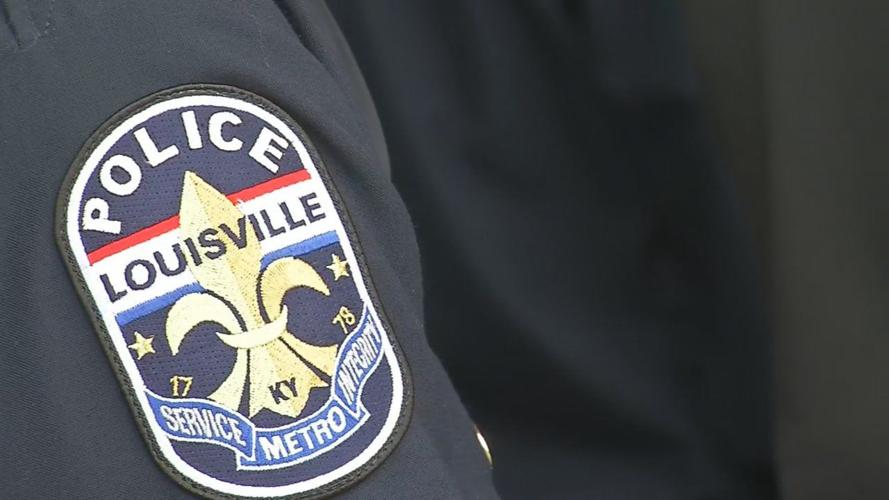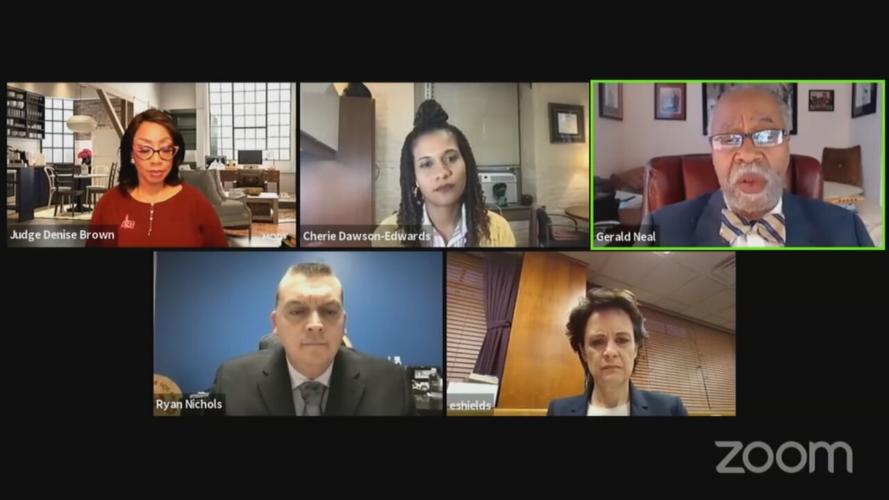LOUISVILLE, Ky. (WDRB) -- The impact of the police killing of Breonna Taylor was at the forefront of a criminal justice summit Monday night in Louisville.
During the discussion, Louisville Metro Police Chief Erika Shields said the manner in which use of force is taught to officers both locally and across the country is the top obstacle in law enforcement's effort to regain community trust.
"We're teaching people how to be found not guilty as opposed to saying, 'How about I train you in such a manner so that you don't end up in court?'" Shields said. "That means ... teaching them so that the totality of their decision-making is stronger on the front end so they don't have to use force."
Shields was joined on the panel by Metro Council President David James, Ryan Nichols, the president of River City FOP Lodge 614, and Dr. Cherie Dawson-Edwards, an associate professor for the Department of Criminal Justice at the University of Louisville. Their conversation centered around LMPD's relationship with the community it is tasked with policing.
"I think perception is reality," Dawson-Edwards said, "and if our local police department wants to do something to improve community relations, then we have to understand why the community feels the way that we do."
Crucial to that discussion was a top-to-bottom review of LMPD published in January that found the department "and communities across the Louisville Metro area are in crisis."
"The Department needs to make major changes — some immediately," the report concluded.
According to the report, there is a "racial disproportionality" in police actions such as traffic stops and arrests. It found that Black people are pulled over and arrested unevenly based on population size, which has created a "deeply strained" relationship between LMPD and predominantly Black neighborhoods.
In addition, the report described police morale as low; 75% of officers who responded to the survey said they would leave the department and go to another agency if they could.
Panelists said changes to the department can't just be talking points on paper; they require action.
"Do we really feel like in this city, (in) our interactions with police in this city, do we feel like as Black folks we're given dignity and respect?" Dawson-Edwards said. "Do we feel like we're given a voice in encounters? Do we feel like there's neutrality and transparency in decision-making? Do we feel like there are trustworthy motives? That's 21st century policing that's building legitimacy."
Related: LMPD review finds police department needs 'major changes'
One of Shields' top priorities, she said, is addressing the city's surge in violent crime "in the community that least wants to see and trust the police." She hopes to do so through "intelligence-led policing."
"It's internal and external," Shields said. "External, it's messaging as much as possible to the community, meeting as many of the community as I can, to say, 'We want to focus on violent crime — gun crime — to make your neighborhood safer. We're not coming out here to just do 3,000 traffic stops and hopefully get some illegal guns. It's focused on those individuals who have committed violence, are known to be violent offenders.'"
The forum was hosted by the African American Initiative and was moderated by state Sen. Gerald Neal, D-Louisville, and Circuit Judge Denise Brown. It was held just days before the one-year anniversary of Taylor's death.
Taylor, a Black woman, was shot and killed March 13, 2020, by white Louisville Metro Police officers serving a search warrant at her apartment near Pleasure Ridge Park.
Her boyfriend, Kenneth Walker, fired a single shot at officers when they used a battering ram to break down the apartment door shortly before 1 a.m. The officers combined to return 32 shots, and Taylor was hit six times and died in her hallway.
Nothing illegal was found at Taylor's apartment. None of the officers who fired their weapons into Taylor's residence were charged in connection with her death.
To watch the summit in full, visit the African American Initiative's Facebook page.
Copyright 2021 WDRB Media. All Rights Reserved.




























